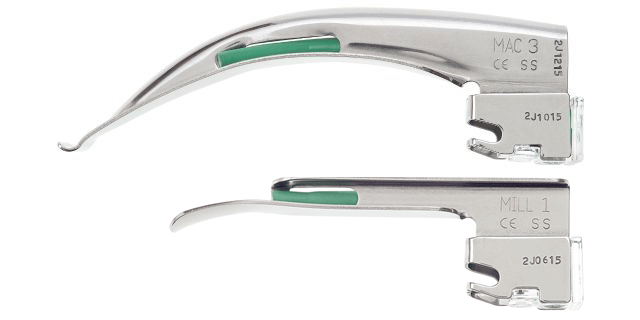8 Child Dental Care Tips For An Optimal Oral Health

Ensuring optimal oral health for children is a crucial aspect of their overall well-being. The foundation for a lifetime of healthy teeth and gums begins in childhood.
As parents, caregivers, or educators, it is our responsibility to instill good dental habits in children from a young age.
In this article, we will explore seven essential child dental care tips that contribute to optimal oral health.
Start Early: The Importance of Early Dental Care
Early dental care is paramount for the development of strong and healthy teeth. Parents should begin oral care even before the first tooth appears.
Wiping the baby’s gums with a soft, damp cloth after feeding helps remove bacteria and sets the stage for a lifetime of good oral hygiene.
Once the first tooth emerges, usually around six months, it’s time to introduce a small, soft-bristled toothbrush.
Using fluoride toothpaste in a tiny amount helps prevent tooth decay and strengthens tooth enamel.
Don’t forget that regular check-ups with an experienced kids’ dentist play a vital role in ensuring your child’s optimal oral health, offering specialized care and guidance to foster a lifetime of healthy smiles.
Regular Dental Check-ups

Scheduling regular dental check-ups is a fundamental step in maintaining optimal oral health for children.
Starting these visits at an early age, around the first birthday, allows the dentist to monitor the child’s dental development, identify any potential issues, and provide guidance on oral care practices.
Regular dental check-ups also help acclimate the child to the dental environment, reducing anxiety and fear associated with dental visits in the future.
Teach Proper Brushing Techniques
Teaching children the correct brushing techniques is crucial for effective oral hygiene.
Children should use a soft-bristled toothbrush suitable for their age, and parents should supervise brushing until the child is around seven or eight years old.
Encourage gentle, circular motions and make sure they brush all surfaces of their teeth, including the front, back, and chewing surfaces. Emphasize the importance of brushing for at least two minutes, twice a day.
Foster Healthy Eating Habits
Diet plays a significant role in oral health. Sugary snacks and drinks contribute to tooth decay and cavities.
Promote a diet high in fruits, vegetables, dairy products, lean proteins, and balance. Eat less acidic and sugary foods, especially in between meals.
Educate children about the importance of drinking water instead of sugary beverages and the impact of nutrition on their overall health, including their teeth.
Introduce Flossing Early
Flossing is often overlooked in child dental care, but it is a critical component of maintaining optimal oral health.
As soon as your child’s teeth start to touch, usually around age two or three, introduce flossing. Initially, you may need to assist them in flossing until they develop the dexterity to do it themselves.
Flossing helps remove plaque and debris from areas between the teeth where toothbrushes may not reach effectively.
Use Fluoride Wisely
One mineral that helps make tooth enamel stronger and more resistant to decay is fluoride.
While fluoride is beneficial, it’s essential to use it wisely. Ensure your child uses an age-appropriate fluoride toothpaste, and monitor the amount used to prevent excessive ingestion.
If your local water supply lacks fluoride, consult your dentist about fluoride supplements. Striking the right balance ensures that your child benefits from fluoride without risking fluorosis, a condition caused by excessive fluoride intake.
Lead by Example and Make Oral Care Fun
Children are more likely to adopt positive dental habits if they see their parents or caregivers prioritize oral health.
Make oral care a family affair by brushing and flossing together. Turn brushing into a fun activity by letting your child choose their toothbrush and toothpaste flavor.
Consider using a timer or playing their favorite music to ensure they brush for the recommended two minutes.
Positive reinforcement, praise, and rewards for consistent oral care efforts can motivate children to take responsibility for their dental health.
Emphasize the Importance of Mouthguards in Preventing Dental Injuries
In addition to regular dental care, instilling the habit of using mouthguards can significantly contribute to optimal oral health in children.
Mouthguards serve as protective gear during various physical activities, preventing injuries to the teeth and surrounding structures.
Encourage the use of custom-fitted mouthguards for activities like sports or recreational pursuits to safeguard against potential trauma, fractures, or dislodgement of teeth.
Prioritizing mouthguard usage not only protects a child’s smile but also promotes a proactive approach to maintaining their overall oral well-being.
Promoting optimal oral health for children involves a combination of early intervention, regular dental check-ups, proper hygiene practices, a healthy diet, and positive reinforcement.
By instilling good dental habits from a young age, we set the stage for a lifetime of strong and healthy teeth.
Investing time and effort in child dental care not only prevents dental issues but also contributes to the overall well-being and confidence of the child.
As caregivers, educators, and parents, let us prioritize the smiles of our little ones and guide them toward a future with a bright and healthy set of teeth.
Also Read:-Oakville Hydrafacial: The Ultimate Skincare Experience
we provide you with free resources and all the help you need to successfully start and run your business. The sky is the limit and we’re here to help you achieve it!





